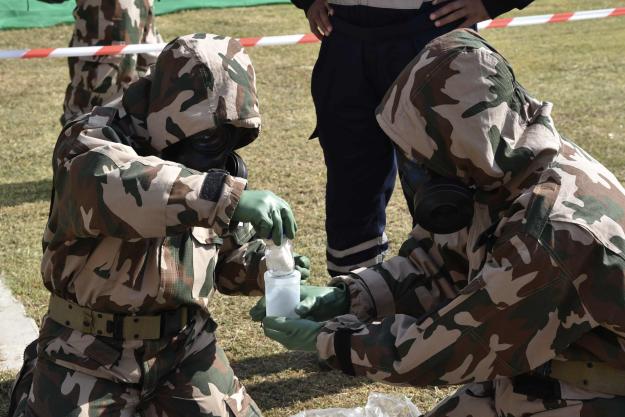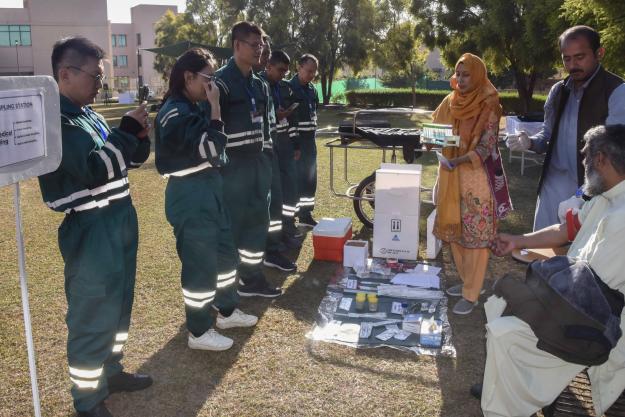
Training for Asian Member States on detection and sampling in a chemical warfare contaminated environment / Pakistan
THE HAGUE, Netherlands—7 February 2025—The Organisation for the Prohibition of Chemical Weapons (OPCW) and the Chemical Weapons Convention (CWC) National Authority of Pakistan co-organised a training course on Detection and Sampling in an Environment Contaminated by Chemical Warfare Agents (CWAs) in Islamabad, Pakistan, from 18 to 22 November 2024.
As the 12th course of the series, this training was designed to strengthen the chemical emergency management capabilities of OPCW Member States, equipping participants with essential expertise to respond effectively to chemical threats.
Mr. Syed Hasnain Haider, Head of the Regional CWC Assistance and Protection Centre, highlighted Pakistan’s strong commitment to chemical disarmament and international cooperation, stating: “Our nation has been at the forefront of promoting chemical safety and security, and we are dedicated to sharing our expertise with other States Parties.”
He further praised the contributions of course participants emphasising the collaborative nature of these trainings: “I would like to acknowledge the active participation and valuable inputs of our participants, representing various countries, organisations, and professional backgrounds. Their collective expertise in diverse fields like chemical safety, security and emergency response, undoubtedly enriched the course discussions and practical exercises.”

Training for Asian Member States on detection and sampling in a chemical warfare contaminated environment / Pakistan
Experts from Pakistan provided in-depth training on international best practices, techniques, and protocols for the sampling, detection, and identification of CWAs. Participants gained comprehensive insights into the hazards and psychological impacts of chemical incidents, as well as hands-on experience with detection, identification, and protective equipment.
Covering key operational procedures, the course included reconnaissance and demarcation of contaminated areas, developing effective sampling plans, ensuring proper chain of custody, and securely transporting highly toxic chemical samples. Learning was reinforced through a combination of lectures, scenario-based discussions, field exercises, and specialised night training, ensuring participants were well prepared for real-world challenges.
The 19 participants represented 13 countries: Bangladesh, Cambodia, China, Iran, Jordan, Kazakhstan, Kiribati, Malaysia, Maldives, Pakistan, Sri Lanka, Thailand, and Viet Nam. In addition to in-depth training, the course also provided a platform for regional professionals to exchange expertise, demonstrating their countries’ commitment to cooperation and capacity building.
Background
Article X of the Chemical Weapons Convention outlines the rights of Member States to request assistance when threatened or attacked with chemical weapons and encourages nations to share technologies and resources for protecting civilians and personnel.
Since 2011, Pakistan has regularly organised international courses in collaboration with the OPCW. To date, it has conducted 11 courses training over 250 participants from 70 OPCW Member States.
As the implementing body for the Chemical Weapons Convention, the OPCW, with its 193 Member States, oversees the global endeavour to permanently eliminate chemical weapons. Since the Convention’s entry into force in 1997, it is the most successful disarmament treaty eliminating an entire class of weapons of mass destruction.
In 2023, the OPCW verified that all chemical weapons stockpiles declared by the 193 States Parties to the Chemical Weapons Convention since 1997 — totalling 72,304 metric tonnes of chemical agents — have been irreversibly destroyed under the OPCW’s strict verification regime.
For its extensive efforts in eliminating chemical weapons, the OPCW received the 2013 Nobel Peace Prize.
